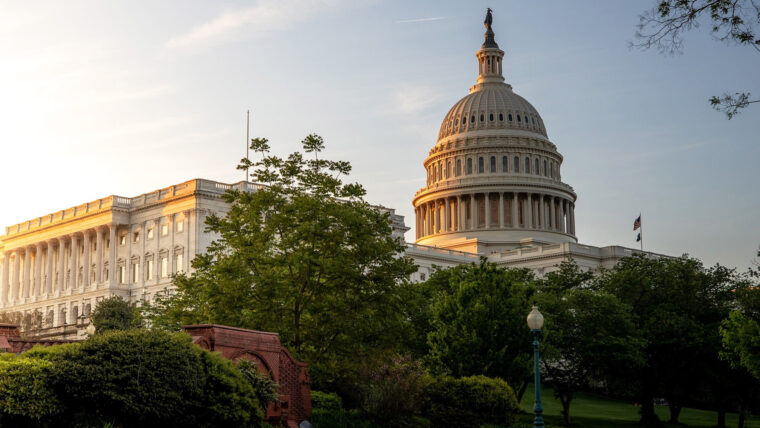
The $1.2 trillion Bipartisan Infrastructure Law (BIL) has already led to billions of dollars in grants being awarded for highway, rail and airport terminal projects since its inception, with frequent announcements about projects being funded.
The Highways and Transit Subcommittee of the Congressional Committee on Transportation and Infrastructure held a hearing Wednesday with a panel of U.S. Department of Transportation administrators for the first time since 2019.
Lawmakers were seeking what subcommittee Chairman Rick Crawford (R-AR) called “clarity on a myriad of issues” related to the Infrastructure Investment and Jobs Act (IIJA), also known as the BIL.
Those issues include inflation driving up the price of construction materials and reducing purchasing power. Highway construction costs have increased 53.8% since the last quarter of 2020, noted Crawford, who said the feds were “pushing progressive policy proposals” rather than enacting the legislation as written.
Specifically, Crawford took aim at a recently finalized rule to create a greenhouse gas performance measure to cut tailpipe emissions stemming from automobiles, stating that there was no Congressional mandate or provided authority to take action he said attached difficult strings to funded projects.
“DOT, with strong direction from the Policy Office, has been using its funding notices for discretionary grant programs to layer on requirements that do not exist in statute,” Crawford said in his opening remarks. “And while we’ve received press release after press release announcing funding awards, these are not legally binding documents. I think we can all agree that federal money has plenty of strings attached to it by Congress. There’s no reason to add even more at the agency level.”
Crawford also said he was concerned by the slow rate that grant agreements were being negotiated.
“You advertise that you’re making grants, but the money isn’t going out the door and projects aren’t being done,” Crawford said.
Among the witnesses who testified was Shailen Bhatt, administrator of the Federal Highway Administration (FHWA), who gave examples of funding being swiftly released in emergency situations.
Bhatt’s examples included Interstate 10 freeway being reopened eight days after a fire closed a portion of highway near downtown Los Angeles. The quick completion was aided in part by FHWA releasing $3 million in emergency relief funding to the California Department of Transportation to offset the cost of emergency repair work. A similar level of emergency support helped reopen I-95 in Philadelphia after a tanker truck explosion caused a fatality and partial collapse of a bridge, he said.
Bhatt acknowledged the need to distribute grant funding expediently and said steps were being taken to make sure it happened.
“FHWA stood up a new, permanent team to oversee grants-management matters,” Bhatt said. “We also implemented process reforms across our suite of federal grant programs.”
While many of the subcommittee members focused on questions about clean energy, automobile technology and highway safety regulations, U.S. Rep. John Duarte (R-CA) was among the minority who had questions about highways and rails.
Duarte directed his questions at Undersecretary of Transportation for Policy Carlos Monje. He asserted that high-speed rail projects — specifically one to connect Merced to Bakersfield — were unnecessary and were being funded at the exclusion of freeway infrastructure he said was “actually needed” for mitigating traffic snarls, calling the high-speed rail pursuit in California “one of the largest boondoggles in infrastructure history” and said elevated high-speed rail platforms were a senseless investment.
“It soars over the city just moving people from Merced to Bakersfield — two fairly mid-sized communities in rural areas,” he said. “Why are we not building freeways? I drive from Modesto to the airport in San Francisco once a week to do this, and I’m glad it’s just once day a week. My constituents can’t get to the best job market in the world.”
Monje disagreed with Duarte’s assertion.
“You can’t build enough highways to fix the traffic problem,” Monje said. “You have to get people out of cars.”
All news and information on this site is provided by the team at Strategic Partnerships, Inc. Check out this short 1-minute video that provides a quick overview of how we work with clients.
Photo courtesy of the U.S. House of Representatives
The post Congressional subcommittee says inflation, slow funding among issues with BIL appeared first on Government Market News.
